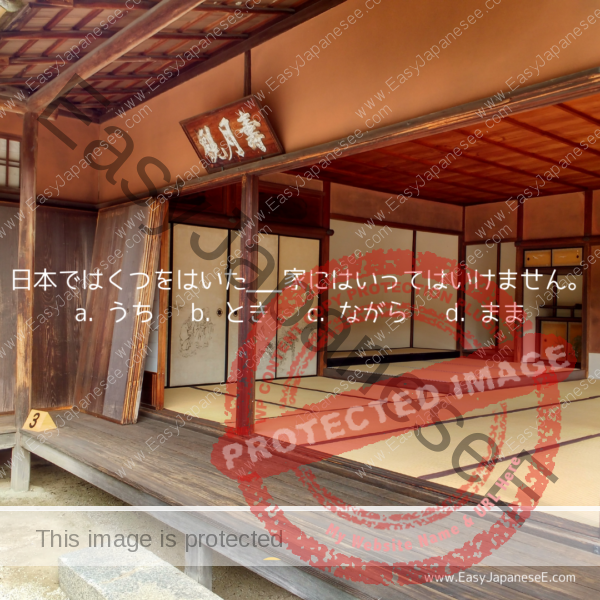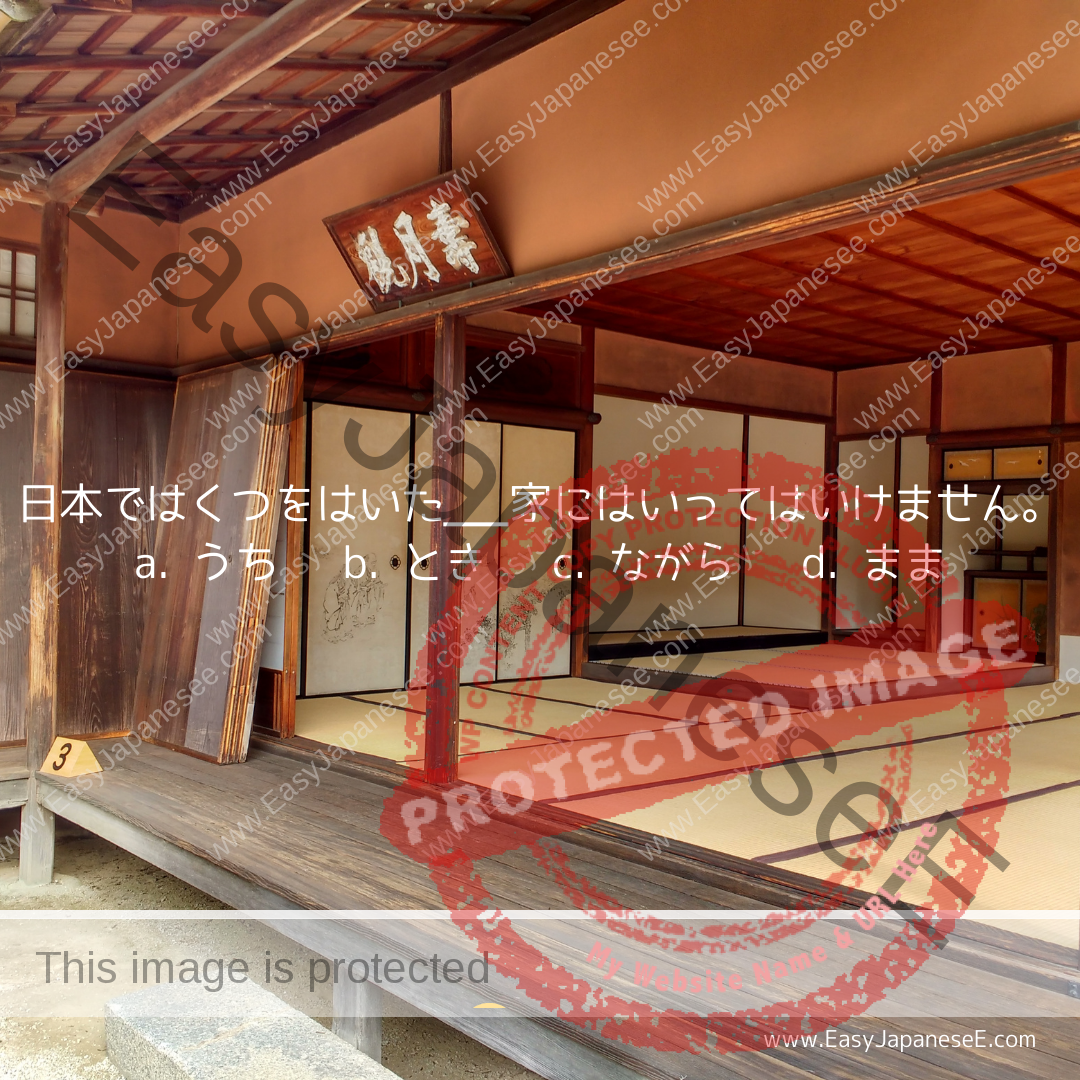
Today’s Question
日本ではくつをはいた 家にはいってはいけません。
a. うち b. とき c. ながら d. まま
Today’s Grammar Point: ~まま…
Connection
[past plain verb] + まま…
[non-past plain negative verb] + まま…
[noun] + のまま…
Meaning
as ~ (is), …
with ~, …
Explanation
“~ まま…” means while ~ is happening, a person does … or … happens
This pattern is often used when doing … while ~ is quite unusual.
Examples
父はめがねをかけたままおふろにはいる。
My father has a bath with his glasses on.日本ではくつをはいたまま家にはいってはいけません。
In Japan you must not enter a house with your shoes on.パジャマをきたまま外に出た。
I went outside while I was still in pyjamas.窓を開けたまま寝てしまった。
I fell asleep with the window open.勉強をしないままテストをうけたから、ひどい点だった。
Because I sat for the test without studying, the mark was terrible.あさごはんを食べないまま学校にきたから、おなかがすいた。
As I came to school without having breakfast, I’m hungry.急いでいたから立ったまま食べた。
As I was in a hurry, I ate it while still standing.生のまま食べてもだいじょうぶです。
You can eat it (while it’s) raw.いつまでも子どものままでいたい。
I want to stay as a child forever.そのままでいいですよ。
Leave it as it is!
Answer to Today’s Question
The correct answer is d. まま and its intended meaning is: In Japan you must not enter a house with your shoes on.
EasyJapaneseE’s Basic Grammar Exercise Modules
Following short modules are available for subscription! Click the name of a module for more information.

